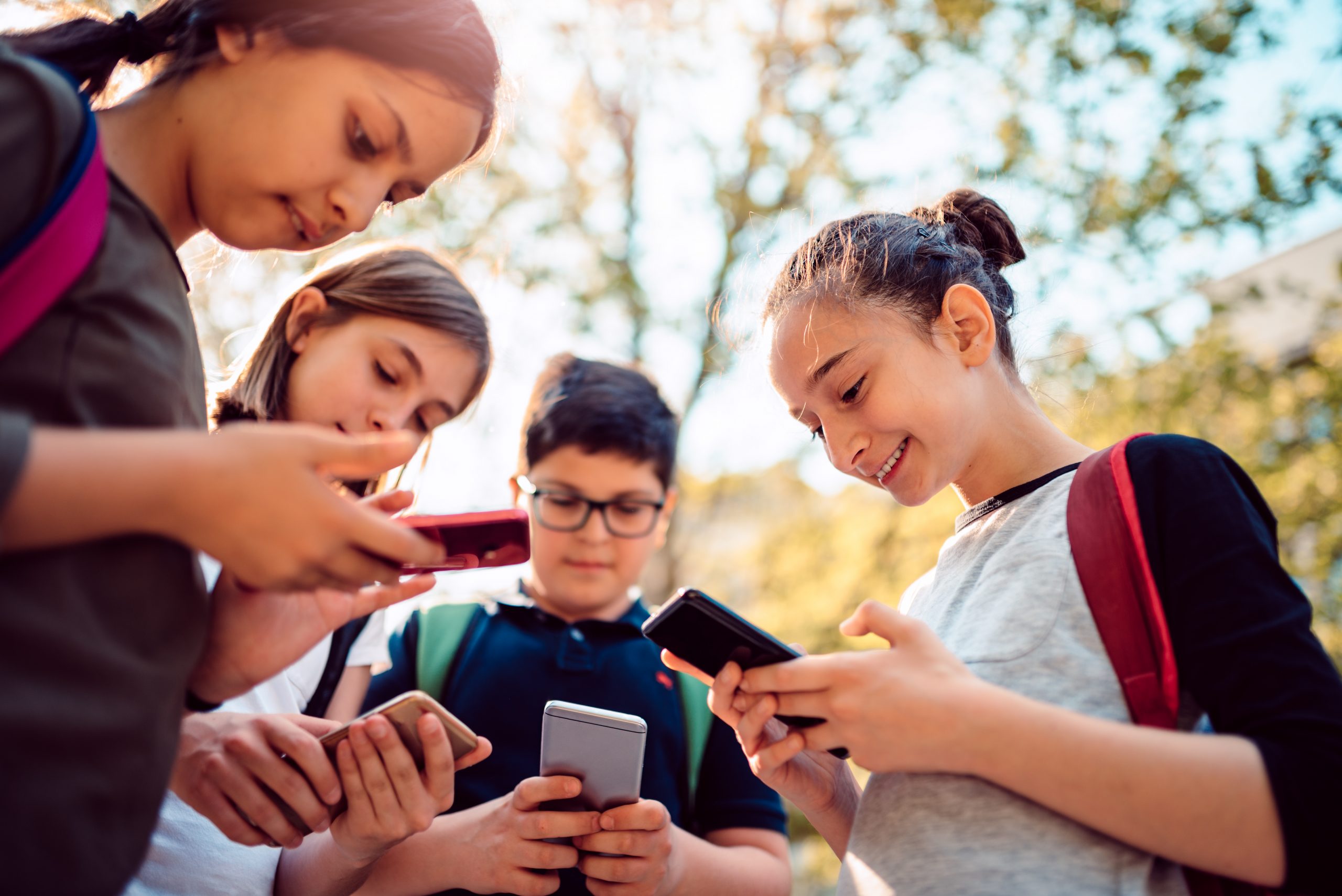Should kids have social media? That’s a tough question to answer. Ultimately, you have the final say in whether or not your children have social media accounts. Social media can expose your child to several dangers such as pornography and cyberbullying that might otherwise not be as much of a threat. That being said, there’s no guarantee that your child won’t be exposed to social media or eventually get an account on their own, so it’s still wise to teach them the skills they might need to stay safe even if you decide against allowing your child to have social media.
No doubt you have been thoroughly briefed by your kids on why they should have social media, so let’s take a closer look at some of the reasons why they shouldn’t.
Social Media Causes Addiction
You’ve felt the incessant urge to check your social media minutes after you’ve just checked it. Maybe you swipe down to refresh the page just to make sure there isn’t anything new—even though there usually isn’t. You can fight it, but there’s a little part of you that is craving more content, and usually that little part is successful at keeping your eyes glued to the screen.
Kids May Be Especially Susceptible to Addiction
As easy as it is for you to become addicted to social media, kids’ developing brains are even more susceptible. Between their teens and mid twenties, the brains of youth and young adults are going through a remodeling process and essentially deciding how they’re going to think and process for years in the future. The excessive dopamine releases caused by intensive social media use may very well affect the brain in this developing stage negatively. Because of the underdeveloped state of the brain at this time, youth may experience more sensitivity to things like rejection or other emotionally charged encounters on social media.
Social Media is Programmed to Captivate
Social platforms are businesses whose goal, like that of any other business, is to generate revenue. Because their platforms are free for users, they do this by selling companies advertising space on their websites. Seems simple enough, but here’s the catch: social media platforms help ensure that their customers’ ads get enough views by keeping your attention to the best of their ability. They do this by using features such as push and email notifications or the buffering wheel that appears when you refresh your social media page. Turns out, these features are alarmingly successful: an estimated 210 million people are addicted to social media, and that statistic isn’t getting any better.
Social Media Negatively Affects Mental Health
It’s no secret that social media abuse contributes to poor mental health. Constant exposure to contrived reality along with cyberbullying and lack of in person interaction can lead to things like body dysmorphia, depression, and anxiety, to name a few.
Perfectionism
Social media has become a display room to show off wealth, talent, and skills, rather than a fun way for friends to connect. Nowadays kids can hardly scroll through Instagram without comparing themselves to those they follow and wishing their life was just as perfect. The problem is, these kids don’t see what’s behind the screen. They don’t see how imperfect the people who are living these “perfect” lives really are. This places unrealistic expectations (body and otherwise) on kids and teens, causing them to feel invaluable and flawed.
Cyberbullying
Unlike traditional bullying, cyberbullying affects its victims 24/7. Unfortunately, there is no surefire way to completely prevent cyberbullying, however if your child doesn’t have social media, the threat becomes significantly less. Social media offers bullies various ways to attack your child: fake accounts, mean posts or comments, sharing of embarrassing photos, etc. By not having social media, your child can avoid many of these threats and the negative effects on their mental health that come with them.
Depression and Anxiety
Research has shown that intensive social media use can lead to increased risk of depression and anxiety. This could be a result of several different factors. Unrealistic body image expectations caused by social media can cause major insecurity and feelings of insignificance which may lead to depression. Cyberbullying may lead to heightened anxiety as victims are unable to find a place of safety. The isolation caused by intensive social media use may cause feelings of loneliness and insignificance which can likewise lead to feelings of depression.
Teaching Online Safety
The choice to allow your children to have social media or not is ultimately up to you. However, no matter your choice, it’s wise to teach your child to be safe online in the case that they do at some point interact with social media. Talk to them about what’s okay and what’s not okay in communicating with others, especially strangers. The more you prepare them for what’s coming, the more likely they’ll be to handle it safely.
Here are a few tips to get you started:
- Set a Good Example: Children learn by example. If you’re setting a good example with your social media interactions and usage, you’re preparing your kids to do the same. If they ever do choose to use social media, they will have an idea of how to use it safely and wisely thanks to your example.
- Set Limits: It’s very easy to become obsessed with social media or any technology and spend too much time online. So it’s vital that your family sets usage limits together. This teaches your kids the self-control that they’ll need should they ever choose to get social media. These limits can help the whole family work towards healthier media use habits.
- Be Open: No matter what decisions you make in your household about social media, make sure you are open about it with your children. If you choose not to allow them to have social media, help them understand why you feel it’s best, and how it will benefit them. If you choose to allow it, help your kids understand that they will be expected to follow certain rules and guidelines.
Let Troomi Help You Teach
Although Troomi doesn’t allow social media on their devices, Troomi phones are a great tool to help your children begin to develop healthy tech habits. These limited-use phones help teach children responsibility, awareness, and self-control, which will give them the skills they need to navigate technology safely whether they use social media or not.
So next time your kids are begging you for a SnapChat or Instagram account, don’t yourself the question “should my kids have social media,” or even “what age should kids have social media—” take a moment to look at the reasons why kids shouldn’t have social media before you make your decision. You might just realize that social media involves more risks that it’s worth.


